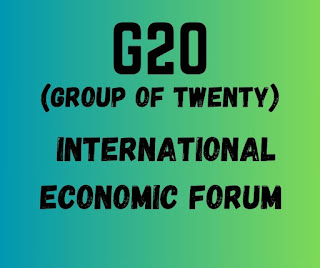The G20, or Group of Twenty, is an international forum for governments and central bank governors from 19 countries and the European Union. It was established in 1999 as a response to the financial crises of the late 1990s and has since become a key platform for international economic cooperation.
The G20 member countries are:
- Argentina
- Australia
- Brazil
- Canada
- China
- France
- Germany
- India
- Indonesia
- Italy
- Japan
- Mexico
- Russia
- Saudi Arabia
- South Africa
- South Korea
- Turkey
- United Kingdom
- United States
- European Union (represented by the European Commission and the European Central Bank)
The G20 holds annual meetings where leaders and officials from member countries discuss and coordinate on a wide range of global economic and financial issues. These issues can include economic growth, trade, financial stability, climate change, and more. The G20's primary goal is to promote international economic stability and sustainable development.
The G20 does not have a permanent secretariat or decision-making powers like some other international organizations. Instead, it operates on the basis of consensus, and its effectiveness relies on the willingness of member countries to cooperate and take collective action to address global challenges. The G20 has played a significant role in responding to global economic crises and shaping international economic policy in recent years.









